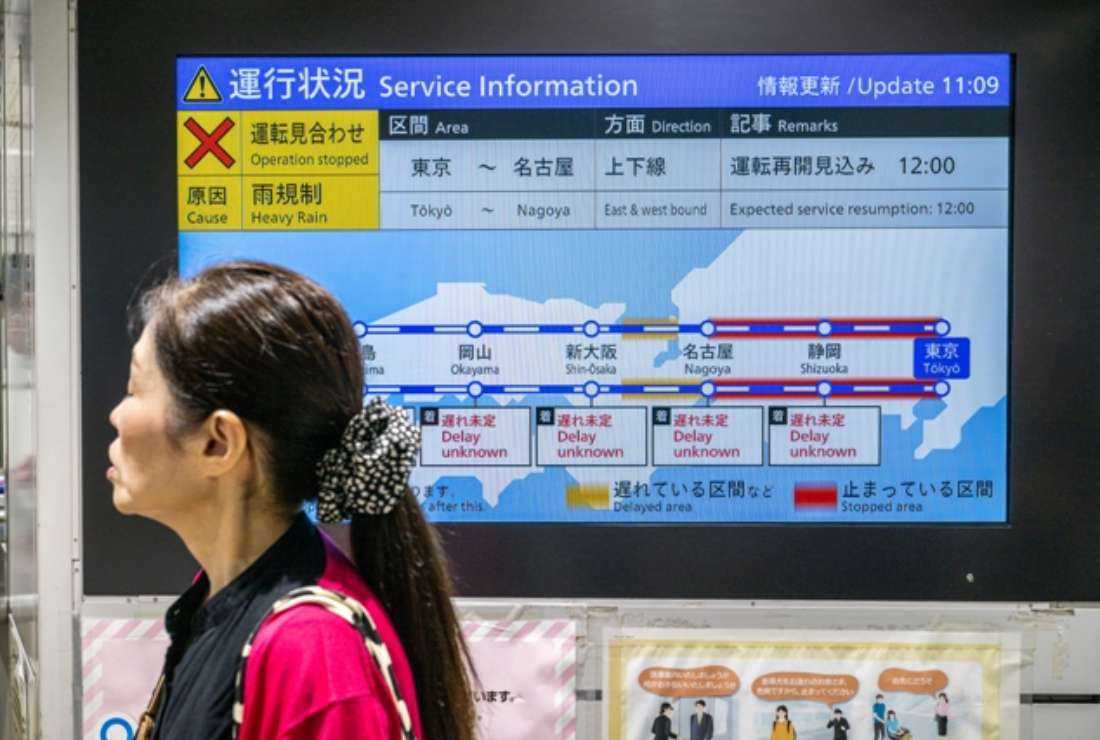
It’s just one of those news items that the Japanese rarely pay attention to. But it’s much more alarming than it sounds.
JR Tokai — the Central Japan Railway Company — is planning to increase the number of vending machines on platforms of stations where the “Shinkansen” or bullet train stops so that customers can purchase beverages and ice cream that are in high demand for in-car wagon sales.
Population decline, and not only in Japan, presents a multifaceted challenge with far-reaching consequences, some less obvious than others. How many would guess that a shrinking population can trigger a series of interconnected economic repercussions that lead to the erosion of comforts, luxuries, and even basic services?
You might think Japanese people barely noticed this news. No. Instead, an undercurrent of sentiment emerged across the Japanese online landscape, a collective grief for products quietly cherished.
Presently, the Tokaido Shinkansen bestows its passengers with the convenience of on-board refreshments, tantalizing snacks, and drinks accessible within the confines of its wagons, on all ‘Nozomi’ and ‘Hikari’ trains.
Yet, the chronicle is set to shift as JR Tokai unveils its decision to withdraw this service by the end of October this very year.
Travelers already miss their favorite ice cream that will no longer be served by the impeccable staff, a woman properly dressed in the JR uniform.
This iconic ice cream creation was introduced around 1991, its inception an endeavor of a food manufacturer nestled in Tenpaku Ward, Nagoya City.
As per JR Tokai passengers, this frozen treat is an extemporary “luxury” that is affordable and could always be counted on, as, just like on airlines, it is served to you before every stop. But this basic service has been deemed too costly, so much so that vending machines will soon replace it.
Population decline poses several dangers to economic stability. One of the most immediate and pronounced effects is the reduction in consumer spending.
When the number of consumers diminishes demand for goods and services also contracts, thereby leading to decreased revenue for businesses. This, in turn, can result in cutbacks, downsizing, and closures in industries that heavily depend on sustained consumer interest.
So we should not really be surprised by the news about ice cream and coffee on the bullet trains. And there could be more similar “fatalities” to come.
The loss of population-driven consumer demand can undermine industries that provide comforts and luxuries, often leading to a shift towards more utilitarian and cost-effective options.
Take, for instance, the case of the coffee service on the Japanese Shinkansen.
The decline in passengers due to a shrinking population will render services like onboard coffee sales economically unviable. This disruption not only affects the passengers who enjoy the convenience of purchasing coffee on their commute but also the employees associated with these services, leading to job losses and unavoidable mechanization.
Many businesses thrive when they can achieve economies of scale, which involves distributing fixed costs over a larger consumer base. When population decline sets in, achieving these economies becomes increasingly challenging.
Businesses are then faced with the dilemma of either adapting to the smaller market size or closing down altogether. This phenomenon is particularly noticeable in industries that cater to niche markets or rely heavily on local demand.
Without a critical mass of consumers, businesses may struggle to generate sufficient revenue, leading to a reduction in options available to consumers and potential job losses in affected industries.
As consumer spending in Japan dwindles individuals tend to focus their financial resources on necessities rather than discretionary spending. This shift can be observed when people opt for more affordable options, such as purchasing inexpensive coffee from vending machines, as opposed to buying more premium alternatives.
The shift from discretionary to necessity spending creates a vicious cycle where reduced demand leads to reduced production, resulting in job losses and further dampening consumer spending options.
Hence, it’s imperative to bear in mind that population decline is not just the mere shrinking of people who are born versus the people who pass away, which for some over-crowded spaces like Tokyo doesn’t sound so bad after all.
The dangers of population decline extend beyond just demographic numbers; by taking away choices from consumers they slowly erode our freedom and ultimately our happiness.
*The views expressed in this article are those of the author and do not necessarily reflect the official editorial position of UCA News.
